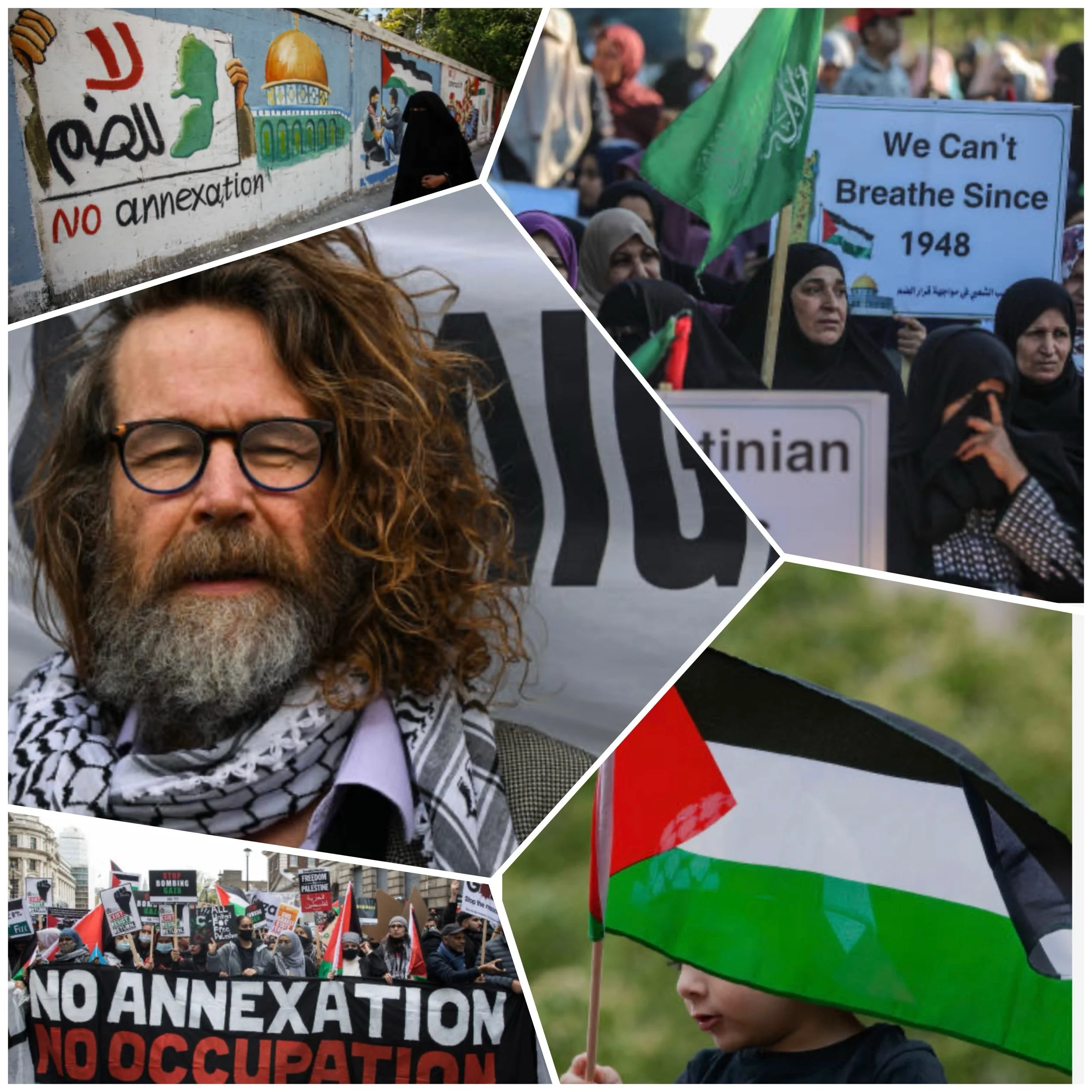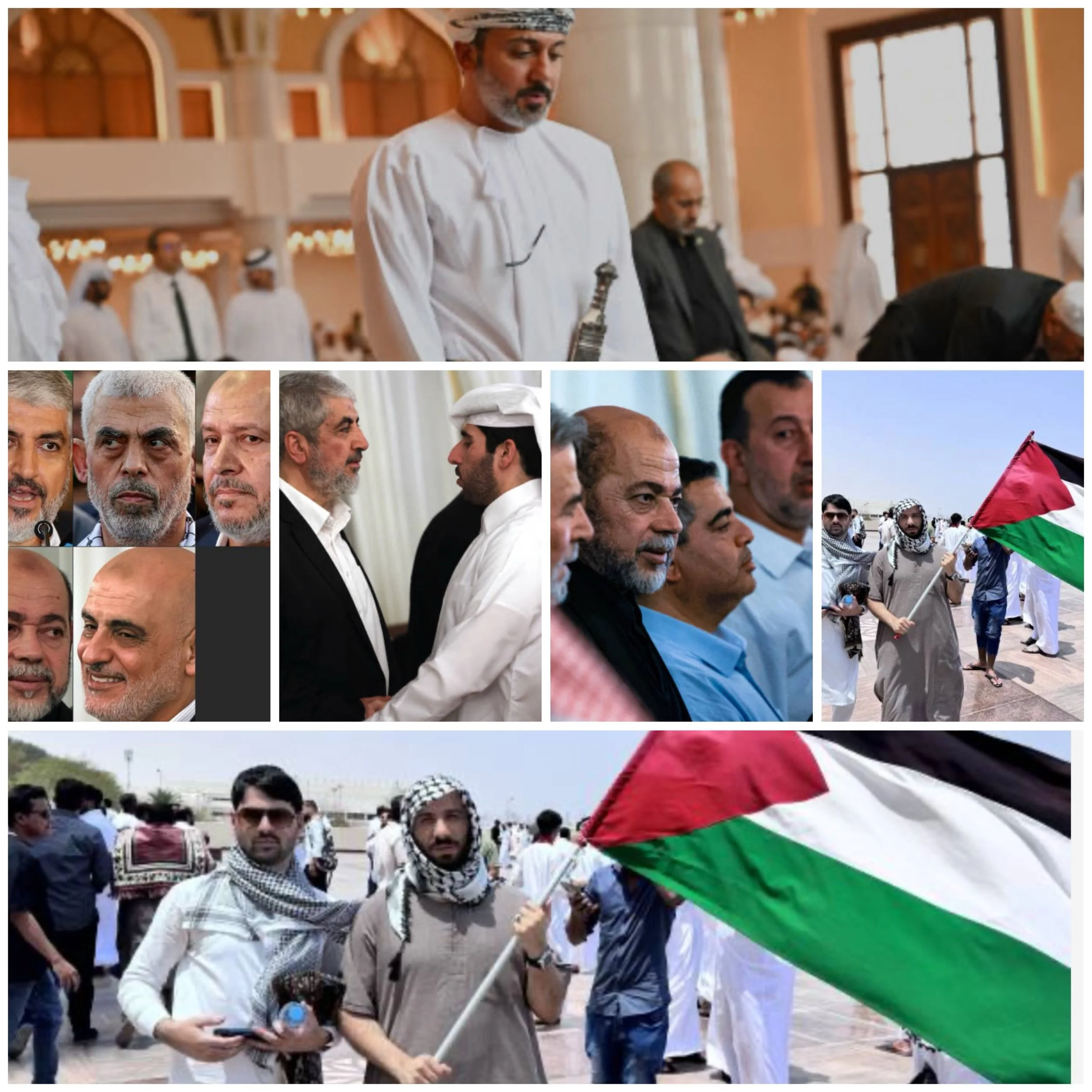Navigating the Global Perspectives on the Annexation of Gaza
Introduction
In the complex web of international politics, few issues have generated as much debate and divergent viewpoints as the annexation of Gaza. This topic touches on deeply-rooted historical conflicts, geopolitical interests, and human rights concerns, making it a focal point for political analysts, human rights advocates, and global citizens alike. This blog post explores various global perspectives on the annexation of Gaza, offering a comprehensive overview of what key political figures and regions think about this contentious issue.
Trump and the Annexation Controversy
During his presidency, Donald Trump took bold steps in Middle Eastern policy, most notably recognizing Jerusalem as the capital of Israel. His administration's stance on Gaza's annexation was seen as supportive of Israeli interests, aligning with Trump's broader approach of strengthening US-Israel ties. The Trump administration's "Peace to Prosperity" plan, which proposed significant concessions to Israel, was met with both praise and criticism globally. Supporters lauded it as a pragmatic approach to peace, while critics argued it undermined Palestinian sovereignty.
Trump's policy was perceived as part of a larger strategy to reshape Middle Eastern alliances, drawing closer ties between Israel and Sunni Arab states against Iran. Critics of this approach warned it could exacerbate tensions in Gaza, leading to potential humanitarian crises. However, supporters believed it could pave the path to a new regional order, reducing conflicts over time.
The ripple effects of Trump's policies continue to influence discussions around the annexation. His administration's decisions have set precedents that current and future leaders must grapple with, as they balance competing interests in the region.
Biden's Diplomatic Tightrope
Joe Biden's presidency marked a shift towards a more traditional diplomatic approach in the Middle East, with an emphasis on multilateralism and human rights. His administration has been cautious in addressing the annexation issue, striving to maintain a balanced stance that supports Israel's security while advocating for Palestinian rights.
Biden's position reflects the United States' long-standing two-state solution policy, which envisions independent Israeli and Palestinian states coexisting peacefully. While this approach has broad international support, it remains challenging to implement, given the complex realities on the ground in Gaza and the West Bank.
The Biden administration's efforts to rekindle peace talks have faced numerous hurdles, including political divisions within Israel and the Palestinian territories. Nonetheless, Biden's commitment to diplomacy and human rights underscores his cautious navigation of this volatile issue, as he seeks to foster stability in a historically contentious region.
Netanyahu's Vision for Gaza
Benjamin Netanyahu, Israel's longest-serving prime minister, has been a key figure in shaping Israeli policy towards Gaza. His leadership has been marked by a firm stance on security and defense, prioritizing the protection of Israeli citizens from threats emanating from Gaza and beyond. Netanyahu's government has often justified military actions and territorial policies as necessary measures to ensure national security.
Netanyahu's vision for Gaza has involved significant military and economic measures, aimed at curtailing the influence of Hamas and other militant groups. Critics argue that his policies have contributed to the humanitarian situation in Gaza, exacerbating poverty and limiting access to essential services for Palestinians.
Despite facing both domestic and international criticism, Netanyahu maintains that his strategies are essential for Israel's safety and stability. His approach to Gaza has influenced Israeli politics and policy discussions, shaping how the country navigates its complex relationships with neighboring regions.
Israel believes it is riding high, and even if Hamas offered a hostages-for-withdrawal deal—the core of cease-fire proposals in the past year—on favorable terms to Israel, it is unlikely that Prime Minister Benjamin Netanyahu would agree. Israel has decimated Hamas’s leadership and disrupted much of its military capacity. Although it has not destroyed Hamas completely, as Netanyahu has vowed, the group is on its heels, and Netanyahu contends that a cease-fire would allow the group to recover. Israel appears to have settled for a grinding conflict in Gaza with the goal of keeping Hamas weak, even if it prevents any larger political deal in the strip that would end the suffering there.
The Middle East's Complex Dynamics
The annexation of Gaza is a highly sensitive topic within the broader Middle East, where historical grievances and geopolitical rivalries abound. Many Arab nations view Israeli annexation attempts as a violation of Palestinian rights, opposing any unilateral moves that alter the status quo without mutual agreement.
Countries like Egypt and Jordan, which have peace treaties with Israel, play crucial roles as mediators in regional conflicts. They often balance their diplomatic ties with Israel against domestic and regional pressures to support Palestinian aspirations. These nations advocate for negotiations and dialogue as means to achieve lasting peace.
In contrast, other Middle Eastern countries, particularly those with stronger ideological or geopolitical opposition to Israel, may leverage the annexation issue to rally support and bolster their own regional influence. This dynamic adds layers of complexity to the already intricate tapestry of Middle Eastern politics.
Hamas view on annexation
On the Palestinian side, the attainment and sustenance of peace present considerable challenges. Israel has systematically targeted and eliminated prominent figures within Hamas, such as Ismail Haniyeh, Yahya Sinwar, Mohammed Deif, along with numerous lower-ranking commanders, thereby engendering a significant leadership vacuum. As a result, there exists ambiguity regarding the extent of influence that external leadership may exert over the remaining Hamas fighters in the Gaza Strip. Any individual endeavoring to assert control in Gaza is likely to face the threat of an Israeli missile strike.
Moreover, the absence of cohesive Palestinian unity further complicates the potential for the emergence of an alternative Palestinian entity to oversee Gaza in the event of a ceasefire. Israel has articulated, through both rhetoric and actions, its profound skepticism towards the Palestinian Authority (PA), which administers the West Bank, and its leader, Mahmoud Abbas, notwithstanding the PA's history of collaboration with Israeli security forces. While the PA and Hamas have undertaken initiatives to transcend their enduring rivalry and facilitate the establishment of a technocratic government in Gaza, any prospective Palestinian leaders would necessitate the support, or at the very least, the acquiescence of these factions in order to govern effectively. Nevertheless, it appears unlikely that Israel would tolerate even a minimal presence of Hamas.
Iran's Strategic Calculus
Iran's perspective on the annexation of Gaza is deeply intertwined with its broader regional strategy, which includes supporting Palestinian groups and opposing Israeli influence. Tehran views any Israeli territorial expansion as a threat, often framing the issue within its narrative of resistance against Western and Israeli dominance.
Iran's support for Hamas and other militant groups in Gaza is part of its effort to project power and influence across the Middle East. This support poses challenges for Israel and its allies, complicating efforts to achieve stability and peace in the region. Iran's involvement in Gaza also impacts its relations with other regional players, contributing to the complex web of alliances and rivalries.
The annexation debate thus becomes a focal point for Iran's broader geopolitical objectives, as it seeks to counterbalance Israeli and Western influence while bolstering its strategic foothold in the region.
Europe's Divided Stance
Europe's response to the annexation of Gaza is varied, reflecting the diverse political landscapes and priorities of its member states. While the European Union as a whole generally supports a two-state solution and opposes unilateral annexation, individual countries may have differing approaches based on historical ties, domestic politics, and regional interests.
Some European nations emphasize diplomacy and economic incentives as tools to encourage peace and stability in the Middle East. They advocate for renewed negotiations and support humanitarian efforts to alleviate conditions in Gaza. Others, however, may take a more critical stance against Israel's policies, calling for accountability and adherence to international law.
The EU's role as a significant donor to Palestinian development initiatives also influences its position on annexation. Europe's divided stance highlights the complexities of formulating a cohesive foreign policy on such a multifaceted issue, where historical, political, and economic factors intersect.
Balancing International Law and Sovereignty
At the heart of the annexation debate lies the delicate balance between international law and national sovereignty. Annexation is generally viewed as a violation of international norms, as it involves the acquisition of territory through force or coercion. This perspective is shared by many countries and international organizations, which emphasize the need for a negotiated settlement.
However, proponents of annexation argue that security concerns and historical claims justify territorial changes. They assert that current geopolitical realities necessitate new approaches to longstanding conflicts, even if these approaches challenge established conventions.
The tension between these perspectives underscores the broader challenge of reconciling legal principles with evolving geopolitical landscapes, as nations grapple with questions of legitimacy, justice, and security.
The Role of Human Rights in Annexation Debates
Human rights considerations play a pivotal role in discussions about Gaza's annexation. Human rights advocates emphasize the importance of safeguarding the rights and dignity of all individuals affected by territorial changes, regardless of their nationality or political affiliation.
The humanitarian situation in Gaza, exacerbated by conflict and economic challenges, underscores the urgency of addressing human rights concerns. Advocates call for increased access to essential services, protection of civilians, and accountability for violations.
These considerations highlight the moral imperative of prioritizing human welfare in policy decisions, as political entities weigh the consequences of their actions on vulnerable populations.
Global Citizenry and the Power of Advocacy
In an interconnected world, global citizens have the power to influence discussions on Gaza's annexation. Civil society organizations, advocacy groups, and individuals can amplify marginalized voices, raise awareness, and hold governments accountable for their policies.
Social media platforms and digital networks provide avenues for engagement, allowing people worldwide to participate in discussions and mobilize for change. This collective action underscores the potential for grassroots movements to shape public discourse and advocate for just and equitable outcomes.
Looking Ahead: Navigating Uncertainty
The future of Gaza's annexation remains uncertain, as geopolitical dynamics continue to evolve. Ongoing diplomatic efforts, regional developments, and shifts in leadership will all play crucial roles in shaping the trajectory of this contentious issue.
While challenges persist, opportunities for dialogue and compromise also exist, offering paths toward sustainable solutions. The international community's engagement, combined with local efforts toward reconciliation, can contribute to a more peaceful and stable future for the region.
Conclusion
The annexation of Gaza is a complex and multifaceted issue, with far-reaching implications for regional and global stability. By examining the diverse perspectives of key political figures and regions, we gain a deeper understanding of the challenges and opportunities that lie ahead.
For political analysts, human rights advocates, and global citizens, staying informed and engaged is essential. By fostering dialogue, promoting human rights, and advocating for peaceful solutions, we can collectively work toward a future that prioritizes justice, security, and prosperity for all.





